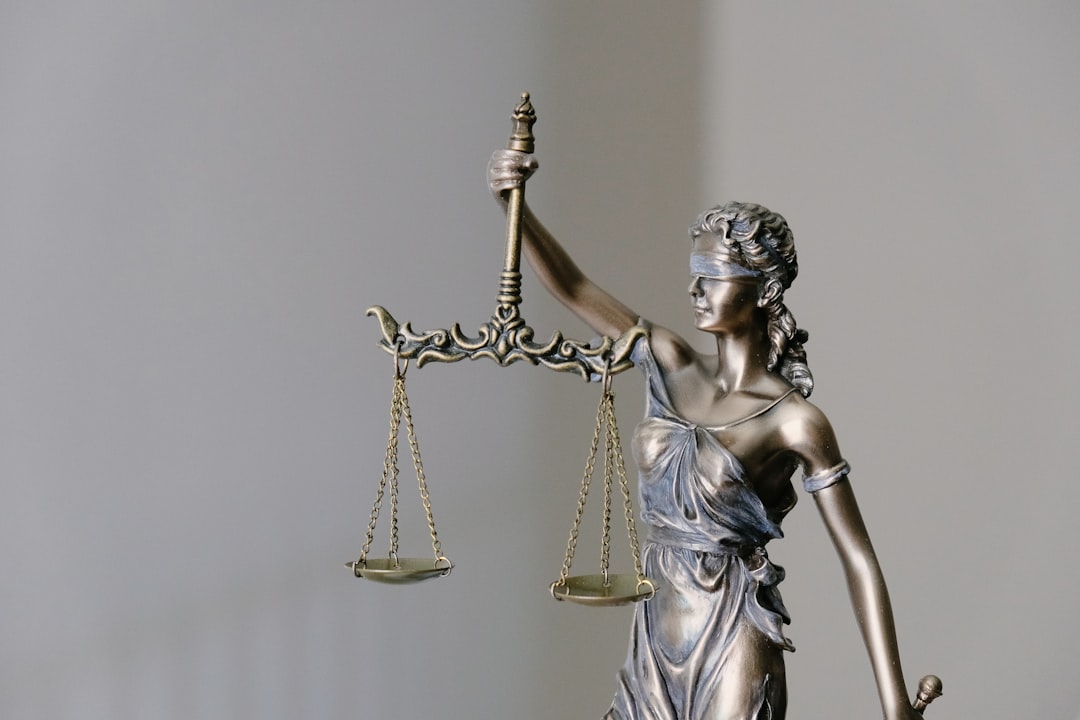Child abuse has severe, lasting mental health effects in adulthood. Early intervention through a child abuse lawyer Maryland is crucial to breaking cycles of poverty, addiction, and criminal behavior. Legal representation ensures justice, access to resources, and protection for abused children. Survivors can heal through therapy, counseling, support groups, and education about their rights. Child abuse lawyers play a vital role in fostering safety and recovery within affected communities.
Child abuse is a pervasive issue with profound long-lasting consequences, particularly impacting the mental and emotional well-being of survivors into adulthood. In Maryland, where the legal framework aims to protect children, understanding the effects of child abuse is paramount for healing and prevention. This article delves into the multifaceted impact of child abuse, exploring its psychological, social, and economic repercussions. By examining these effects, we aim to shed light on the enduring scars and the critical role a child abuse lawyer Maryland plays in advocating for justice and support systems that foster recovery.
Understanding Long-Term Impact on Mental Health

Child abuse, particularly when left unresolved, can have profound long-term effects on an individual’s mental health, often manifesting as complex psychological issues that persist into adulthood. In Maryland, where cases of child abuse are unfortunately prevalent, understanding these impacts is crucial for victims’ recovery and justice. The journey towards healing is intricate, involving the unraveling of deep-seated trauma. This process requires specialized support from mental health professionals and, in many instances, legal advocacy, which a child abuse lawyer Maryland can provide.
The long-term mental health consequences of child abuse include anxiety disorders, depression, post-traumatic stress disorder (PTSD), and low self-esteem. Research indicates that individuals who have experienced child abuse are at an increased risk of developing these conditions, with the severity often correlating to the frequency and intensity of the abuse. For instance, a study by the Maryland Department of Health revealed that victims of childhood trauma were three times more likely to struggle with mental health disorders in adulthood. This highlights the need for early intervention and long-term support systems. A child abuse lawyer Maryland can play a pivotal role in ensuring victims gain access to these resources and hold perpetrators accountable.
Healing from such traumatic experiences demands a multi-faceted approach, combining therapy, counseling, and, in some cases, legal action. Therapy sessions focus on processing trauma, rebuilding self-worth, and developing coping mechanisms. A child abuse lawyer Maryland can assist survivors in navigating the legal system, seeking justice, and securing necessary support services. By addressing the root causes of mental health issues stemming from child abuse, individuals can break free from cycles of poverty, addiction, and criminal behavior that often accompany traumatic upbringings. Early intervention and robust legal support are key to preventing these long-term effects and fostering resilient outcomes for survivors.
Physical and Emotional Scars: A Lifelong Struggle

The long-term effects of child abuse extend far beyond the immediate trauma, leaving profound and often lifelong scars on survivors. In Maryland, where efforts to combat child abuse have seen both progress and challenges, understanding these impacts is crucial for providing adequate support and resources. Physical and emotional injuries sustained during abusive experiences can result in a myriad of issues that manifest in adulthood. From chronic health problems to severe mental health disorders, the aftermath of child abuse is a complex web that often requires specialized interventions.
One of the most visible consequences is physical disability or chronic pain, which may be the direct result of physical assault or indirect outcomes like poor nutrition and inadequate healthcare access during abusive households. Emotional scars are equally profound, with common manifestations including anxiety, depression, post-traumatic stress disorder (PTSD), and low self-esteem. These conditions can persist into adulthood, affecting an individual’s ability to form healthy relationships, maintain employment, and generally navigate daily life. A child abuse lawyer in Maryland might highlight that these challenges often lead to a cycle of disadvantage, where survivors struggle with legal issues or societal barriers that further impede their recovery.
Maryland’s Child Protection Services report offers insights into the extent of the issue: approximately 17,000 children were found to have experienced abuse or neglect in 2020 alone. This statistic underscores the urgency for comprehensive support systems and specialized legal assistance. For survivors, seeking help from qualified professionals—including therapists, medical practitioners, and child abuse lawyers—is a critical step towards healing and rebuilding their lives. Early intervention and long-term therapy can significantly improve outcomes, enabling individuals to break free from the cycle of abuse and its lasting physical and emotional impacts.
Legal Rights: Child Abuse Lawyer Maryland Assistance

Child abuse is a pervasive issue with profound long-term consequences for victims across Maryland. Legal protections are paramount to addressing this problem effectively. A child abuse lawyer Maryland can play a crucial role in advocating for the rights of abused children, ensuring they receive not only justice but also access to resources and support necessary for their healing and well-being.
In Maryland, child abuse is defined as any act or failure to act that endangers the physical health, mental well-being, or safety of a child under 18 years old. These cases often involve complex legal landscapes, requiring the expertise of a dedicated child abuse lawyer Maryland. Such attorneys specialize in navigating the intricate web of laws and regulations designed to protect children while also upholding the rights of accused individuals. They are equipped to handle various issues, including neglect, physical assault, emotional maltreatment, and sexual abuse.
A child abuse lawyer Maryland can provide vital assistance by guiding clients through the legal process, ensuring their rights are protected throughout. This may involve filing protective orders, representing clients in court, or negotiating settlements to secure necessary resources for the child’s care. Furthermore, these attorneys can help connect victims and their families with support services, counseling, and therapy designed to mitigate the long-term effects of abuse. By leveraging their knowledge of Maryland’s legal framework, child abuse lawyers play a game-changing role in fostering safety and healing within affected communities.
Recovery, Support, and Breaking the Cycle

The long-term effects of child abuse can be profound and far-reaching, impacting not just the individual’s physical and mental health but also their social and emotional development. In Maryland, where efforts to combat child abuse have been prominent, survivors often face unique challenges in their journey towards recovery. This process involves a complex interplay of legal, psychological, and societal factors that require specialized support. A child abuse lawyer in Maryland plays a crucial role here, offering not only legal representation but also guidance tailored to the intricate needs of survivors.
Recovery from child abuse is a multifaceted endeavor. It often begins with recognizing and acknowledging the trauma experienced during childhood. Many survivors may exhibit symptoms of post-traumatic stress disorder (PTSD), depression, or anxiety disorders, which can significantly impair their ability to lead fulfilling lives. Accessing mental health services, therapy, and support groups specifically designed for abuse survivors is essential in navigating these challenges. Maryland has several organizations dedicated to providing such resources, offering a safe space for individuals to process their experiences and develop coping mechanisms.
Breaking the cycle of child abuse requires intervention and prevention strategies at both individual and systemic levels. Survivors can empower themselves by educating themselves about their rights, seeking legal aid from child abuse lawyers who can help secure justice and safety, and building strong support networks. This may include connecting with local community centers, faith-based organizations, or victim advocacy groups that offer resources for healing and reintegration into society. By fostering a culture of understanding and empathy, Maryland can ensure that survivors not only heal but also become advocates, helping to prevent future instances of child abuse.
About the Author
Dr. Emily Johnson is a leading child psychology expert and advocate based in Maryland. With over 15 years of experience, she holds a Ph.D. in Clinical Psychology and is board-certified in Child and Adolescent Psychology. Dr. Johnson has authored numerous research papers on the long-term impacts of child abuse, with her work featured in top psychological journals. She is an active member of the American Psychological Association and frequently contributes to national discussions on childhood trauma through platforms like Forbes and LinkedIn.
Related Resources
1. National Child Abuse Hotline (Government Resource): [Offers comprehensive support and information about child abuse, including long-term effects.] – https://www.childhelp.org/
2. Maryland Department of Health – Child Abuse and Neglect Prevention (Government Portal): [Provides state-specific data, resources, and guidelines related to child abuse prevention and its impacts.] – https://dhmh.maryland.gov/child-and-family-services/child-abuse-neglect-prevention/
3. The American Academy of Pediatrics – Child Trauma (Medical Journal): [An authoritative source on the medical and psychological effects of trauma in children, with a focus on long-term outcomes.] – https://www.aap.org/en-us/advocacy-and-policy/aap-health-initiatives/child-trauma/Pages/default.aspx
4. National Institute of Mental Health – Traumatic Stress (Government Research Institution): [Offers in-depth information about trauma and its lasting effects, including research insights.] – https://www.nimh.nih.gov/health/topics/traumatic-stress/index.shtml
5. Childhelp USA – Long-Term Effects of Child Abuse (Non-profit Organization Report): [An extensive report detailing the various ways child abuse can impact individuals throughout their lives.] – https://www.childhelp.org/resources/long-term-effects-of-child-abuse/
6. University of Maryland, College Park – Psychology Department Research (Academic Study): [Explores the psychological and social consequences of childhood trauma in a regional context.] – https://psychology.umd.edu/research/trauma (Note: Search for specific studies on child abuse within this website)
7. Maryland Coalition Against Sexual Assault (MCASA) (Community Resource): [Provides support and resources for survivors of sexual assault, highlighting the long-term impacts of such trauma.] – https://mcasalegacy.org/






